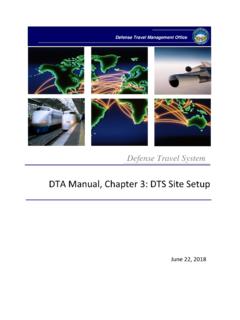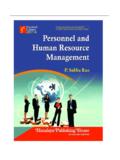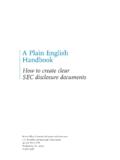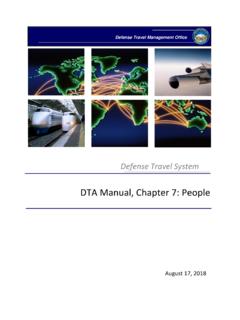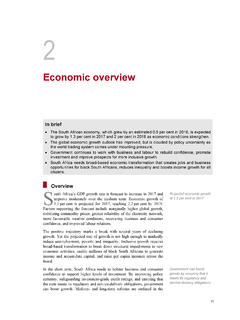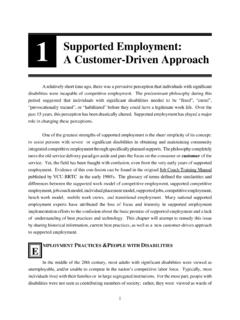Transcription of Learning through work placements and beyond - …
1 Brenda Little and Lee Harvey July 2006 Learningthrough workplacements and beyondii Learning through work placements And BeyondLEARNING through work placements AND BEYONDby Brenda Little and Lee HarveyAugust, 2006A report for HECSU and the Higher Education Academy s work PlacementsOrganisation Forum Lee Harvey and Brenda Little assert their moral right to be identified as the author ofthis work in accordance with sections 77 and 78 of the Copyright Designs and Patentsact, 1988. Lee Harvey and Brenda LittleResearch teams:Centre for Research and Evaluation, Sheffield Hallam UniversityLee HarveyGillian FowlerTamsin Bowers-BrownColin McCaigDot BigginLiz FlowerAnita CooperCentre for Higher Education Research and Information, Open UniversityBrenda LittleKaren YarrowLearning through work placements And BeyondiiiAcknowledgementsWe are very grateful to a number of individuals and institutions for helping this studycome to , our thanks go to the Higher Education Academy s work PlacementsOrganisation Forum, ably guided by Val Butcher, for commissioning the study, and toHECSU for funding it.
2 Thanks to Jane Artess for her support , we must thank all those staff in the seven higher education institutionsinvolved in the study, namely King s College, London, Middlesex University,Sheffield Hallam University, the University of Bath, the University of Chester, theUniversity of Huddersfield, and the University of Leeds who were prepared to takethe time to talk to the research team about various aspects of work placements withinparticular undergraduate programmes, and who helped us gain access to , we are grateful to the Analytical Services Division of the Higher EducationFunding Council for England, and in particular Nick Bailey (an undergraduate onwork placement ) for allowing us to draw on the findings from an internalinvestigation into placement student , and most importantly, our thanks go to all those students who had completedtheir work placements and were prepared to talk about and share their work placementexperiences with members of the research team.
3 Lee HarveyBrenda LittleCentre for Research and EvaluationCentre for Higher Education Researchand InformationSheffield Hallam UniversityOpen Universityiv Learning through work placements And BeyondLearning through work placements And BeyondvCONTENTSCHAPTER 1: 2: TYPES OF ORGANISED work or optional placements ?..5 Length of of or unpaid?..8 chapter 3: CHOICE, EXPECTATIONS AND PREPARATION for choice of for the 4: TYPE OF work AND EVOLUTION OF THE of of 5: TRAINING AND during the and 6: PERSONAL DEVELOPMENT: SKILLS, ABILITIES ANDSUBJECT and skills, responsibility and academic of personal 7: FUTURE 8: GOING BACK INTO THE FINAL to work , taught sessions and group 9: bigger on Learning from : Analysis of students on sandwich courses and on placement Learning through work placements And BeyondLearning through work placements And BeyondIntroduction 1 chapter 1: INTRODUCTIONWork-based Learning at higher education level has long been a feature of UK highereducation.
4 For example, in the 1950s, the National Council for Technological Awardsadvocated that undergraduate programmes in engineering and technology shouldincorporate planned periods of industrial placement . Since that time, undergraduateprogrammes incorporating such work -based placements have been introduced acrossa wide range of subject areas. In some programmes the placement is a year-longactivity sandwich between significant periods of on-campus Learning and thesandwich placement may be optional. In other programmes, often those seen asmeeting both academic and professional development objectives, shorter blocks ofplacements are interspersed throughout the undergraduate programme (and the blocksare compulsory). More recently, there has also been a growth in undergraduateprogrammes that allow students to opt to take a work -based unit, which involves ashort, 6 10 week, placement as part of their overall have been various studies since the late 1980s looking at the impact ofplacement experience on students.
5 Most of these focus on how it makes studentsready for, and more effective in, the workplace once (2000, p. 122) noted that most curriculum frameworks against which learningfrom work experience are mapped identified a range of skills, including personal andsocial skills, communication, problem solving, creativity and organisational :It is of course questionable to what extent any one work placement mightprovide opportunities for a student to develop all of the above , the explicit identification of certain skills seems to serve as auseful prompt to students and employers to address these aspects in discussionsabout suitable tasks and activities for a work sums up much of the approach and available literature, that is, it adopts a skilldevelopment approach, oriented to the workplace and tends to reduce development toa set of skill enhancement rather than be seen as a holistic experience (which, as wewill see below, tends to be the experience of the sample students).
6 Recent studies of the relationship between work placements , in sandwich courses, andsubsequent short-term employment outcomes tend to find sandwich students areadvantaged in the labour market; at least in the early part of their careers (Bowes andHarvey, 1999; Mason et al., 2003). Employers tend to have positive views aboutgraduates who have undertaken periods of work experience during theirundergraduate programme. They are perceived as having acquired many of the skillsessential for success at work , including communication and interpersonal skills, inaddition to acquiring attributes such as team-working, and an awareness of workplaceculture. In Graduates work (Harvey et al. 1997), for example, employers interviewedwere very positive about placements but placed the emphasis, not surprisingly, on theemployability:In terms of the benefits of placements , their order would be (1) money, (2) a realinsight into how a lot of the theory they learn is actually applied, (3) access to a2 IntroductionLearning through work placements And Beyondlot of equipment that we are privileged to have and a lot of universities don thave; we have probably more modern, faster, better equipment than a lot ofuniversities are able to afford, and (4) the business of working in teams andseeing what it is like to actually contribute to a group scientific development,rather than being asked to work independently on their own, so they becomesocial.
7 (Human resources manager, large pharmaceutical manufacturers;quoted in Harvey et al., 1997)However, although recently-reported studies of work placements continue to citepersonal skills development as an important feature of placement Learning , less isreported about the extent to which there is a positive transfer of Learning from theplacement to subsequent stages of an individual s Learning through the taughtprogramme of studies. In a couple of cases, recent graduates, in the Graduates Workstudy, did emphasise the role of workplace Learning in developing subjectunderstanding and becoming independent learners:I mean, it s all well and good somebody being able to write an essay on "Marxand labour", or whatever, but if they can relate it to work much more, then theyare going to be much better workers. So I think the ties have got to I been able to come to a place like this and somebody had said, "Right, thisis sociology in practice.
8 Can you see the structure here, can you see the workingrelationships?", it would have been immensely beneficial.(New teacher, small private school for children with special needs; quoted in Harvey et al., 1997)Those that went on the industrial year tended, over all, to get better degreeresults than those that hadn t been on the industrial year. I think it is becausethey had a real-world experience and most of the jobs were economics-relatedand in lectures and discussions you could see things come out of people sexperience. That s because they had been out in the environment for a year:reading the press, experiencing what actually goes on in day-to-day firms thatdeal with the sort of things that you want to do.(Recent graduate, large public financial institution; quoted in Harvey et al., 1997)However, very little research explicitly explores how the placement experiencetranslates into academic development from the point of view of current is taken for granted, the observed maturity of undergraduates returning from aperiod of work placement is assumed to carry over into a more studious or reflectiveapproach to Learning but there is little direct evidence to be found of this in and Ellerker (1994) are unusual in providing a couple of examples ofstudent s reflection on the integration of work experience and academic work .
9 Theyquote two students, the first indicating how work experience had provided expertise inmarket research techniques that would be useful for a marketing option and anotherwho used the experience for a final year project. However, as we shall see, this isintegration at a rather limited level and there is something more holistic going on withour through work placements And BeyondIntroduction 3 This study, then, focuses on the effects, as perceived by the students themselves, ofwork experience placements on Learning as well as , the overall aims of the study are to: investigate students perceptions of Learning from placements (planned as partof the undergraduate curriculum); explore how values and ethical positions are developed on placement ; investigate the extent to which students try to transfer and build on suchlearning in subsequent stages of the taught research was based on face-to-face semi-structured interviews with students whohad recently returned from a period of work experience.
10 A total of 82 students tookpart and interviews were recorded and transcribed. Interviews ranged in length from20 minutes to an hour and a half. The students were from seven higher educationinstitutions, including pre-1992 universities, post-1992 universities and a recentlyestablished university, formerly a college of higher education. Additional interviews,10 in total, were undertaken with key members of staff who had responsibility interviews were used because we wanted to get the student view on theirexperience without curtailing the scope of the answers, which would have occurredwith a questionnaire. Further, we wanted to explore the nuances of their answers,which required a face-to-face conversational approach. The interviews were semi-structured in as much as we had a series of prompts to ensure that we covered allphases of the placement experience from selection of placement , through adjustmentand training to engagement and outcomes, both academic and employment , we started by asking the students why they had done a placement , who theyworked for on placement and what they did and let the conversation flow from were chosen to reflect a range of curriculum designs involving plannedplacements (including those where the placement element is optional) but excludingthose subjects, such as teacher training, nursing, medicine, social work where theplacement is wholly integrated where the sites of Learning are tightly defined andsequenced, and successful delivery of the whole curriculum is dependent on thatintegration.


